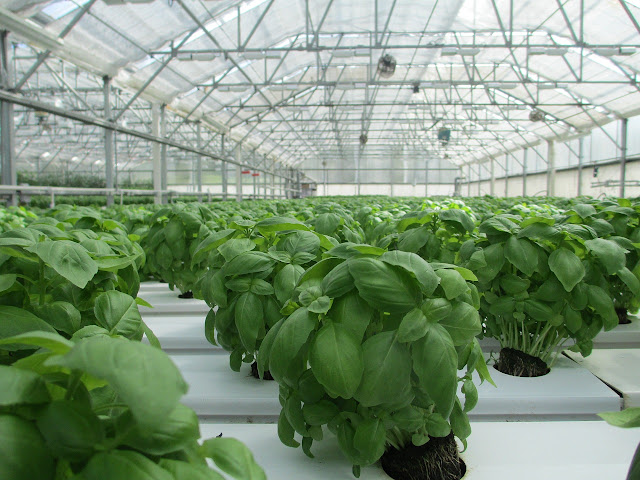Greenhouse farming, also known as protected cultivation, offers a myriad of benefits that have revolutionized modern agriculture. By creating a controlled environment, greenhouse farming maximizes crop production, extends growing seasons, conserves resources, and mitigates the impact of external factors. This blog delves into the various advantages of greenhouse farming, shedding light on its significant contributions to sustainable agriculture.
Year-Round Crop Production:
One of the most significant advantages of greenhouse farming is its ability to enable year-round crop production. The enclosed structure shields crops from external weather fluctuations, allowing farmers to cultivate crops irrespective of seasonal changes. By manipulating temperature, humidity, and light intensity, greenhouse farmers can create an optimal growth environment, resulting in consistent and high-quality crop yields throughout the year. This steady crop production ensures a stable supply of fresh produce, addressing the issue of seasonal shortages and promoting food security.
Enhanced Crop Quality:
The controlled environment of greenhouses offers the flexibility to fine-tune environmental factors to meet the specific needs of crops. This precision in control leads to enhanced crop quality with better color, taste, and texture. The absence of external stressors and pests inside the greenhouse results in healthier and more robust plants. As a result, greenhouse-grown produce often commands premium prices in the market due to its superior quality and appearance.
Water Efficiency:
Water scarcity is a pressing concern in many regions, making efficient water usage a crucial aspect of sustainable agriculture. Greenhouse farming promotes water efficiency through advanced irrigation systems like drip irrigation and automated watering. These systems deliver water directly to the plant roots, reducing water wastage and enhancing water use efficiency. The ability to control water supply and prevent evaporation inside the greenhouse ensures that every drop of water is utilized effectively, making greenhouse farming an environmentally conscious choice.
Reduced Pest and Disease Pressure:
One of the significant advantages of greenhouse farming is its natural protection against pests and diseases. The physical barrier of the greenhouse keeps out pests, including insects and larger animals, reducing the need for chemical pesticides. Beneficial insects like ladybugs can be introduced inside the greenhouse to control pest populations naturally, further minimizing the use of chemical inputs. This eco-friendly approach to pest management preserves the ecological balance within the greenhouse and promotes a healthier environment for crops.
Higher Crop Yields:
Greenhouse farmers achieve higher crop yields compared to traditional open-field farming. The ability to control environmental factors such as temperature, humidity, light, and CO2 levels optimizes plant growth, leading to increased yields per unit area. The controlled environment allows for year-round cultivation and crop rotations, maximizing the productivity of the land. This higher productivity makes greenhouse farming economically viable and attractive for farmers seeking to increase their profits.
Sustainable Resource Management:
Greenhouse farming promotes sustainable resource management by allowing precise control over nutrient supply and usage. Modern greenhouse practices include recycling and reusing water and nutrients, minimizing waste generation, and reducing the environmental impact. By adopting such resource-efficient practices, greenhouse farmers contribute to environmental protection and conservation of natural resources.
Crop Diversity and Year-Round Availability:
Greenhouses offer the flexibility to grow a wide variety of crops, including those not native to the region. This diversification enables farmers to respond to market demands and ensures a constant supply of fresh produce throughout the year, regardless of external factors. The ability to cultivate different crops simultaneously enhances the economic viability of greenhouse operations.
Climate Change Resilience:
In the face of climate change and extreme weather events, greenhouse farming provides a buffer to protect crops. The controlled environment shields plants from heatwaves, heavy rains, and cold spells, safeguarding agricultural productivity and food security. As climate change continues to impact traditional agriculture, greenhouse farming offers a resilient and adaptive approach to ensure crop survival and continuity.
Energy Efficiency:
Modern greenhouses are designed to be energy-efficient, incorporating technologies such as solar panels, natural ventilation systems, and energy-efficient lighting. These measures lower operational costs and minimize the carbon footprint of greenhouse operations, making them environmentally friendly. Energy-efficient practices contribute to sustainable agriculture and align with the global efforts to combat climate change.
Technological Advancements:
Greenhouse farming embraces smart technologies, such as automated climate control, remote monitoring systems, and precision agriculture tools. These advancements improve the efficiency and management of greenhouse operations. Farmers can access real-time data, monitor crop health, and make informed decisions to optimize crop growth and resource utilization. By integrating technology into greenhouse farming practices, farmers can enhance productivity and stay at the forefront of modern agriculture.
Conclusion:
Greenhouse farming stands as a game-changer in modern agriculture, embodying the principles of sustainability, efficiency, and innovation. By providing a controlled and protective environment, greenhouse farming enables year-round crop production, improved crop quality, and increased yields. Additionally, it fosters responsible resource management, reduced environmental impact, and enhanced crop diversification. As the global population continues to grow, embracing the benefits of greenhouse farming becomes crucial in ensuring food security, environmental stewardship, and the prosperity of farming communities
Thanks for visiting us.
#GreenhouseFarming #SustainableAgriculture #ProtectedCultivation #CropQuality #WaterConservation #CropProtection #EnvironmentalStewardship #FoodSecurity








No comments:
Post a Comment